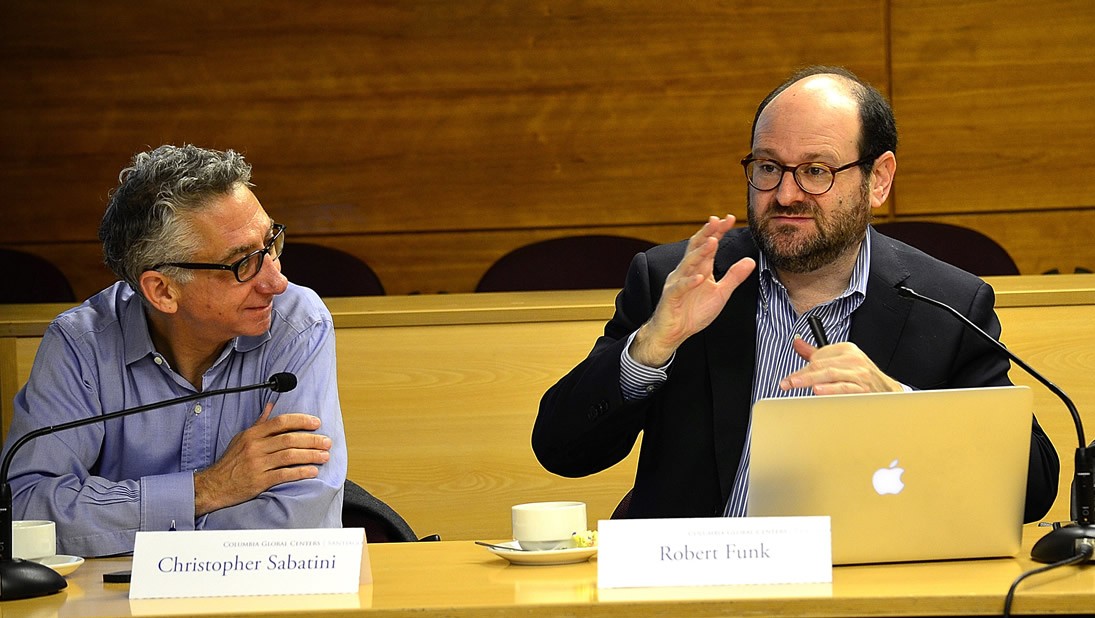Series of Events on Latin American Politics in Santiago

Polarization, populism, and increasing decline in support for traditional political parties are all common elements behind this year’s presidential elections in Colombia (May), Mexico (July) and Brazil (October). This, according to Christopher Sabatini, lecturer of international relations and policy at the School of International and Public Affairs (SIPA) at Columbia University, who visited Chile in late May to participate in a series of events on Latin American politics.
Sabatini is also the founder and executive director of the new research non-profit, Global Americans and the editor of its news and opinion website www.LatinAmericaGoesGlobal.org. From 2005 to 2014, he was the senior director of policy at the Americas Society and Council of the Americas (AS/COA) and the founder and editor-in-chief of the hemispheric policy magazine Americas Quarterly (AQ)
In a breakfast discussion with fellow political scientist Robert Funk, Assistant Professor of Political Science at Universidad de Chile’s Institute for Public Affairs, both experts discussed these and other regional trends, including rising distrust in institutions and the lack of enthusiasm for democracy among young voters. They also analyzed Venezuela’s political and economic collapse and the political scenarios following the resignation of President Pedro Pablo Kuczynski (PPK) in Peru. Juan Gabriel Valdés, Chile’s former Ambassador to the United States, joined the dialogue to report on his experience regarding President’s Trump policies towards the region.
Funk’s research areas include democratization, ideology and political elites. In addition to teaching and research, he consults on Latin American political risk for a variety of government and private sector institutions, and is a frequent commentator and columnist in Chilean and international media.
Sabatini also gave a lecture on these topics at a gathering organized by Encuentros El Mercurio, the organization that co-sponsored his visit to Chile. He was joined in the discussion by Juan Pablo Toro, International Editor at El Mercurio newspaper, and Karen Poniachik, the Santiago Center’s Director. The conversation focused on the possible outcomes of the presidential elections in Mexico and in Brazil, the future of the 2016 peace accords with the FARC guerillas in an eventual government of Ivan Duque in Colombia, and the economic problems that President Mauricio Macri is facing in Argentina. The reasons behind the weakness and lack of articulation of Venezuela’s opposition (which according to Toro should be called dissidence rather than opposition) was also addressed.
Finally, at another academic event, Christopher Sabatini was joined by the former Secretary General of the Organization of American States (OAS), José Miguel Insulza, at the University of Chile's Institute for Public Affairs for a discussion of the political outlook for Latin America. Insulza, who is now a Chilean Senator, expressed concern over the fact that a general democratic consensus appears to be eroding. He also raised questions over the United States' role in the region going forward, stressing the importance of multilateral organizations like the OAS.
- A report on this event (in Spanish) is available here.
- See images here